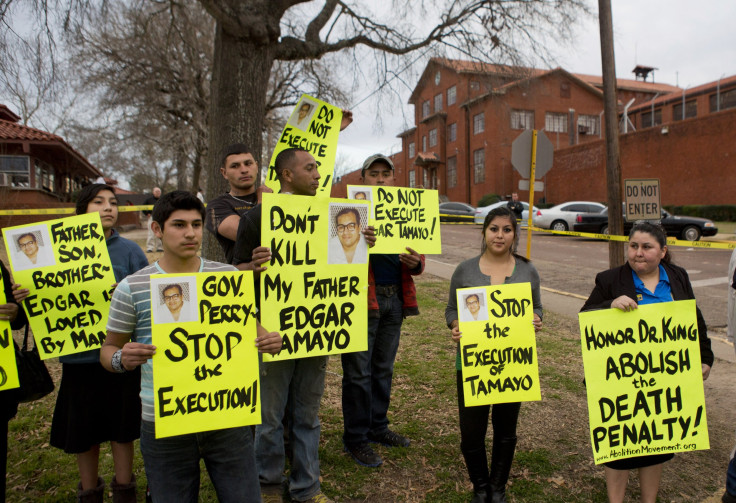Death Penalty In The US: Arkansas To Execute 8 Men In 10 Days, After A Nearly 12 Year Hiatus On Executions

Eight inmates are to be executed over the next 10 days in the state of Arkansas. The pace of executions, which is unprecedented in recent U.S. history, has been brought about by the looming expiration date of the drug the state uses for lethal injections.
The last execution carried out by the state of Arkansas was 12 years ago, in 2005.
The eight men — Bruce Earl Ward, Don William Davis, Ledelle Lee, Jack Harold Jones, Stacey Eugene Johnson, Marcel W. Williams, Kenneth D. Williams and James F. McGehee — have been convicted for murders that were committed during 1989 and 1999, according to the New York Times.
The executions would take place between April 17 and 27 — just days before Arkansas’ supply of the lethal injection drug expires.
Gov. Asa Hutchinson, a Republican and former federal prosecutor, reportedly said Friday that the reason for the executions to be held so closely together was to do with the scarcity of the drug.
“It is uncertain as to whether another drug can be obtained… and the families of the victims do not need to live with continued uncertainty after decades of review,” Hutchinson said.
However, human rights and civil liberties organisations condemned the planned executions.
"The Arkansas Coalition to Abolish the Death Penalty (ACADP) is outraged by ... plans to carry out eight executions within the span of ten days in April…this planned mass execution is grotesque and unprecedented," the organization said, according to CNN.
Meanwhile, lawyers of the death row inmates are attempting to appeal against the planned executions on both ethical and technical grounds. They argue that the drug Midazolam, given to knock the inmate unconscious before he/she is given two more drugs (pancuronium bromide and potassium chloride) to paralyze and terminate them, does not guarantee a painless death. They are also seeking clarification on whether or not Arkansas' temporary ban on executions passed by Supreme Court in 2012 is still valid.
"Unless the prisoner is unconscious, then drugs two and three will cause pain — torturous punishment, in violation of the Eighth Amendment, and state guarantees against cruel and unusual punishment," Jeffrey Rosenzweig, an attorney for three of the inmates, said, while citing "botched executions" in several states that also involved Midazolam.
© Copyright IBTimes 2024. All rights reserved.






















